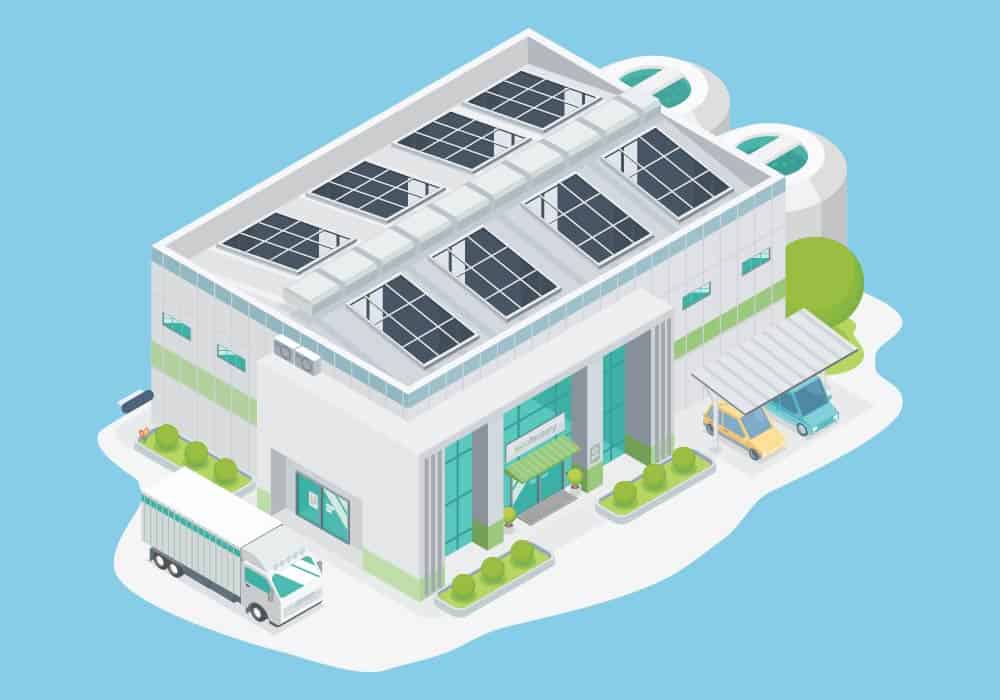A Guide to Malaysia's Self-Consumption (SELCO) Programme
Last updated: 4 Sept 2025
Learn how Malaysia's Self-Consumption (SELCO) programme allows businesses to generate and consume their solar energy, promoting sustainability and cost savings.
Malaysia's Self-Consumption (SELCO) programme offers businesses the opportunity to generate and consume their own solar energy. This initiative not only promotes sustainability but also provides significant cost savings.
As of 1 January 2025, the Malaysian government expanded the SELCO programme so more solar power can be generated for own use.

Understanding SELCO
SELCO enables businesses to install solar photovoltaic (PV) systems on their premises and consume the generated electricity without exporting excess energy to the grid.
This self-reliant approach reduces dependence on traditional energy sources and contributes to environmental conservation.
Benefits of SELCO
Switching to a Self-Consumption (SELCO) model offers several advantages, particularly for commercial and industrial energy users:
Cost Reduction
By generating their own electricity, businesses can significantly lower their energy bills.
Hedge Against TNB Tariff Hikes
As TNB rates increase over time, companies with self-consumption solar systems enjoy greater financial predictability and cost control.
Energy Independence
SELCO allows companies to become more self-sufficient, reducing reliance on external energy providers.
Environmental Impact
Utilising renewable energy sources decreases carbon emissions, aligning with global sustainability goals.
Long-Term Investment with Strong ROI
Solar PV systems have a lifespan of 25 years or more, making them a valuable long-term investment. While the initial capital expenditure may be high, the return on investment (ROI) remains attractive, especially as energy prices continue to rise.
Recent Enhancements
In January 2025, the Malaysian government expanded the SELCO programme to include:
No Capacity Limits
Businesses can now meet 100% of their energy needs through solar power, removing the previous 85% capacity cap.
Expanded Installation Options
The programme now permits ground-mounted and floating solar installations within the user's premises, offering greater flexibility.
Inclusion of the Agricultural Sector
Agricultural businesses can now participate in SELCO, promoting sustainability across various industries.
Battery Energy Storage Systems (BESS) Requirement
For systems above 72 kWp, BESS is mandatory to ensure grid stability, enhancing the reliability of solar energy usage. However, a temporary exemption has been granted until 31 December 2025, meaning businesses installing SELCO systems before this date will not be required to integrate BESS.
Additionally, standby charges of RM12/kWp per month were initially proposed for all systems above 72 kWp, potentially extending the ROI for solar PV systems from 2 to 4 years. However, as per the latest update, standby charges will now only apply to solar PV systems exceeding 1 MWp.
Despite these changes, solar PV remains a high-value investment due to its long lifespan and cost-saving potential.
Who Is Eligible for SELCO?
Under the Electricity Supply Act 1990, individuals or businesses may apply for SELCO if they meet the following requirements:
- Using, working, or operating any solar PV generating facility for self-consumption and indirect connection to the licensee distribution network in Peninsular Malaysia and Sabah.
- The relevant distribution licensee (DL) whose network is to relate to the self-consumption solar PV generating facility.
Conclusion
Malaysia's SELCO programme empowers businesses to take control of their energy consumption, promoting sustainability and operational efficiency. By adopting SELCO, companies can contribute to environmental conservation while enjoying economic benefits.
Contact us at buySolar today to learn more about how SELCO can help your company save on electricity costs and achieve energy independence!
